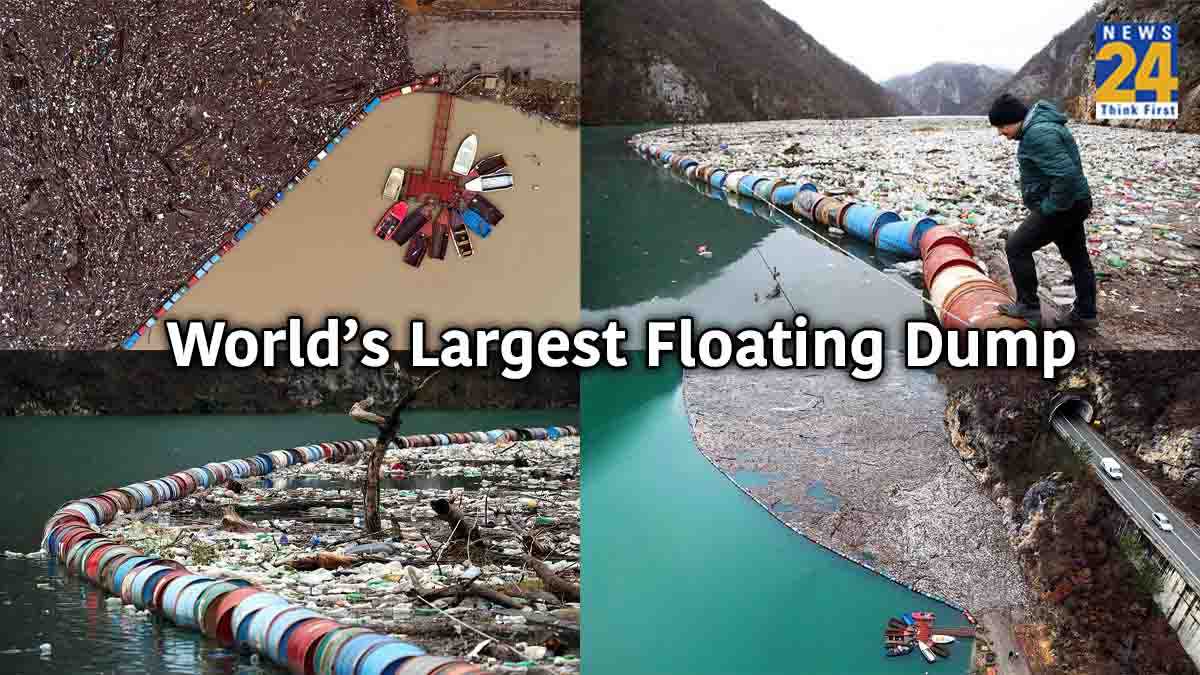The Drina River in Bosnia’s Visegrad area has sadly transformed into the world’s largest floating garbage dump, posing significant threats to three countries due to the flow of debris. Weak pollution regulations have led to this alarming state, with plastic bottles, rusted barrels, old tires, household items, and various debris cluttering the river.
Read More: Israel Takes Control Of Massive Weapons Complex Below Densely Populated Gaza Area
The Alarming Situation
For years, both locals and tourists have been discarding their waste into the Drina River, resulting in an escalating heap of garbage. This buildup intensifies during winter and rainy seasons, creating a massive barrier within the river, causing chemical pollution and ecological harm.
The Efforts to Contain
To prevent tons of waste from flooding downstream areas during extreme weather, a barrier was constructed by the Bosnian Hydroelectric Plant team. This measure aims to impede the flow of debris into low-lying regions in Bosnia, Serbia, and Montenegro prone to floods during heavy rainfall or snowmelt.
Environmental Concerns
Dejan Furtula from the environmental group Eko Centar Visegrad expressed concerns about recent heavy rains potentially pushing garbage into Montenegro’s vulnerable areas. The river, stretching 346 kilometers with numerous branches, is currently undergoing what locals term the “garbage season.”
Read More: Maldives MP Urges Parliament To Summon FM For Inaction Over Remarks On PM Modi
Cleanup Challenges
Efforts to clean this colossal waste buildup face significant hurdles, requiring approximately six months for removal. Visegrad’s municipality struggles with limited space to store waste, resorting to hazardous garbage burning due to lack of disposal options.
The Root of the Problem
Bosnia-Herzegovina’s lag in development and infrastructure, stemming from the aftermath of the Yugoslav wars, contributes to the absence of proper waste treatment facilities. Widespread dumping in mountains and valleys leads to rainwater carrying debris into rivers, exacerbating the environmental crisis.
Read More: Chinese Researcher Successfully Creates Real-Life Invisibility ‘Cloak’ Inspired By Harry Potter
Immediate Impact
The irresponsible disposal methods, like hanging garbage on tree branches, eventually result in river accumulation during the rainy season, posing risks to the region’s ecosystem and the health of its inhabitants.
The urgency now lies in finding sustainable waste management solutions to prevent further ecological deterioration and protect these vital waterways.













